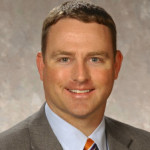A Cooperative Baptist Fellowship task force developing guidelines for responding to a wide range of sexual misconduct by clergy is in place and compiling best practices to be shared with churches and partner ministries, according to an update Jan. 11.
Pam Durso, executive director of Baptist Women in Ministry, and Stephen Reeves, associate coordinator of partnerships and advocacy for the CBF, said in a joint blog that while most congregations have established policies and procedures regarding the abuse and assault of children, few are prepared to address clergy sexual misconduct with adults.
“As we know, Baptist denominational bodies and networks are loosely connected organizations with no official codes of conduct or approved policies for clergy members,” they said. “Most Baptist bodies have no specific instructions about how to deal with clergy who assault or harass parishioners.”
“Baptists also have no hierarchical structures or systems that mandate education for clergy members or churches, nor do Baptists have a denomination-wide way of investigating violations or monitoring violators,” they continued. “But the seriousness of clergy sexual misconduct demands a diligent response, especially by freedom-loving, autonomous Baptist churches.”
Durso and Reeves, who first began discussing the need for resources to assist ministers, church members, partner organizations and congregations to address the issue in 2015, said clergy sexual misconduct covers a wide range of behaviors from rape and sexual assault to inappropriate touching and verbal comments.
After an initial meeting of concerned CBF members, they presented their findings to the CBF Ministries Council, one of three leadership groups formed in a restructuring of the organization in 2012, just prior to last year’s General Assembly in June.
The task force met again in October, adding several new members. It is comprised of two attorneys, two pastors, four church staff members, four social work degreed individuals, two seminary professors, two leaders of CBF partner organizations, one pastoral counselor and several survivors and/or family members of survivors. The task force has three primary missions:
• To collect and compile best practices policies that can be distributed to churches and partners via CBF and BWIM networks.
• To raise awareness through educational opportunities (workshops at General Assemblies, gatherings of state CBF and BWIM groups, seminary connections).
• To provide recovery services resources and information.
In the coming months, Durso and Reeves said the task force will share a listing of existing resources on both the CBF and BWIM websites and also develop new resources for churches, ministers and eventually seminaries.
“The task force is committed to helping Baptists create healthy churches and partner organizations and to ensure the presence of ethical, honest, trusted minsters and leaders,” they said. “We know this work requires hard conversations, intentional education, and consistent attention from all corners of the Baptist world, and we welcome your assistance and feedback along the way.”
Previous stories:


